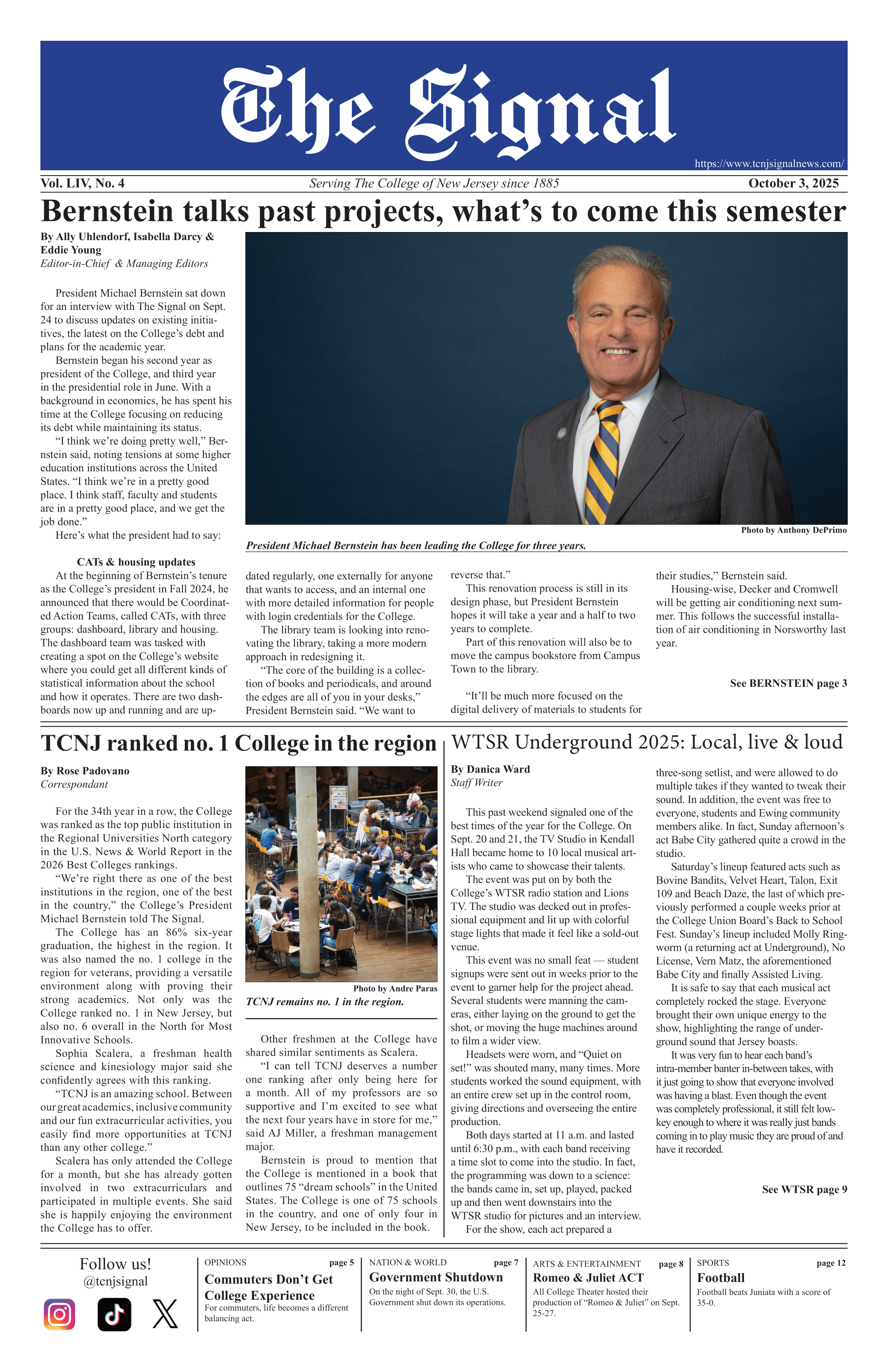By Heidi Cho
Arts & Entertainment Editor
I am running out of my dorm to make it to my 8 a.m. class. I am running on three hours of sleep because I had work the night before. I am running, and the camera pans out and I ask myself why I’m so overwhelmed, because I did everything right. I did everything my professors, my guidance counselors and my parents told me to do — get an education, get a job and get a life.
This time, I wondered, “what if?” — something my teachers taught me to never do. What if school started later? What if all my classes taught lifelong skills that could improve my quality of life? What if the education system worked better?
This might sound like I’m the kid in class who asks the teacher, “what do we need to bother learning this for?” But I wasn’t that kid in class. I kept my head down and did my work, and the teachers liked me well enough. But it doesn’t take a jerk to criticize a system that can be improved.
It’s obvious that the school system isn’t based on scientifically proven methods to learn and retain information that will help students live better lives. If it was, class would have started later years ago, when a 2015 study from University of Minnesota’s Center for Applied Research and Educational Improvement found that high school students perform better academically when their school days begin as late as 8:55 a.m.
The same goes for college students. A 2017 study from the University of Nevada, Reno, proved that college students learn better in classes starting around noon and ending before evening.
Most schools still do start at 8 a.m. though, and our performance reflects this continuous sleep deprivation.
Recount how many times someone has fallen asleep in class unintentionally, or a friend snapping at you for a wayward comment and apologizing afterward because it wasn’t warranted. Maybe it was hard to remember information or focus during class.
Sleep deprivation can be the cause behind all of those scenarios, including higher risk of anxiety, depression and hypersexuality, according to Dr. James Maas’s research. I’ll leave it up to you to decide whether the traits associated with “lazy” teenagers are related to the sleep loss accumulated over the years.
Maas, a psychologist and former professor at Cornell University, gave a speech on sleep deprivation in 1995 that is still discussed today, just like many other issues with education.
I would be rich if I had a penny for every time I heard someone criticize the public school system. It’s an equally troubling problem when people say they learned more at their job than in school, or that they never found a use for their education.
Some lessons can simply be outdated or not be practiced enough in real life to be useful. With modern technology, memorization is pointless unless you need to access that information in under the time it takes for a Google search. The practicality of what a student learns can vary from integral to obsolete.
It would be more relevant to learn practical life and career skills. In general, it would help to learn how to program, balance a check, do taxes or take out a mortgage. It is important to know basic first aid, the signs of a heart attack or medically accurate sex education. It would be great to know how government or our health care system works. It could help to learn how to actually communicate effectively.
School can help holistically improve lives. There have to be ways people can learn how to healthily cope with stress and deal with emotions instead of using drugs. It can help to learn about mental health or active listening in school, or even just how to ask for help when you need it.
Education is important, but there is so much to learn outside of pure theory and statistics that can help people be better citizens and have better relationships with one another. What you learn and how you learn it matters so much when people spend most of their youth in school.
There has to be a balance between learning theoretical information, and practicing it in real life. Maybe it would be easier to lead my life if school had taught me the skills needed for adulthood, higher education and my future career in the first place.
I don’t regret the education I have had so far, but I wonder where I would be now if I hadn’t been sabotaged since the beginning. Maybe I wouldn’t be running everywhere.







